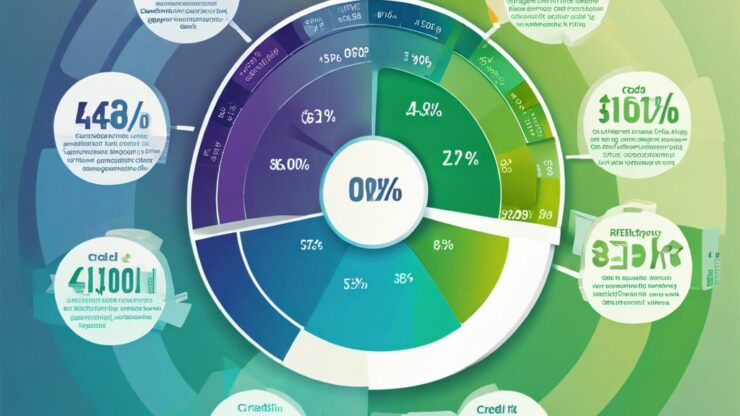What is Credit Utilization Ratio?
Your credit utilization ratio is a crucial aspect of your credit score that many consumers overlook. It represents the percentage of your total available credit that you’re currently using, and it plays a significant role in how lenders view your creditworthiness. A high credit utilization ratio can indicate financial strain, while a low ratio suggests responsible credit management.
Understanding this ratio is essential not just for maintaining a good credit score but also for unlocking better financial opportunities, such as lower interest rates on loans and credit cards.
The Ideal Credit Utilization Ratio
Financial experts generally recommend keeping your credit utilization ratio below 30%. This threshold is often seen as a benchmark for demonstrating responsible credit use. However, for optimal credit health, aiming for a ratio below 10% can significantly enhance your credit score. Let’s explore why maintaining a low credit utilization ratio is beneficial.
- Improved Credit Score: A lower ratio indicates to lenders that you are not overly reliant on credit, suggesting that you can manage your finances effectively.
- Better Loan Terms: With a strong credit score, you are more likely to qualify for loans with favorable interest rates and terms.
- Increased Credit Limits: Lenders may be more willing to increase your credit limits, further improving your ratio.
Strategies to Manage Your Credit Utilization
Now that you understand the importance of your credit utilization ratio, it’s time to take action. Here are some effective strategies that can help you manage and improve this vital aspect of your credit health:
- Pay down existing credit card balances regularly to lower your utilization.
- Consider requesting a credit limit increase on your existing accounts, which can improve your ratio as long as your spending remains the same.
- Spread out your purchases across multiple credit cards rather than concentrating them on one, which can help lower the utilization on any single card.
- Monitor your credit regularly to ensure accuracy in reporting and address any discrepancies.
Disclaimer
This article has been created or edited with the support of artificial intelligence and is for informational purposes only. The information provided should not be considered investment advice. Please seek the support of a professional advisor before making any investment decisions.






